Detailed Agenda
Monday - May 5, 2025 | Pre-Conference
| Start Time | Description |
|---|---|
| 10:30 am | Lorem Ipsum B3 Insight's Ripple Effects Summit Begins Private meeting, separate registration required |
| 12:00 pm | Lorem Ipsum B3 Insight's Ripple Effects Luncheon Private meeting, separate registration required |
| 1:00 pm | Lorem Ipsum B3 Insight's Ripple Effects Summit Continues Private meeting, separate registration required |
| 2:00 pm | Lorem Ipsum Exhibitor Set-up In the Irving Convention Center Ballroom |
| 5:00 pm | Lorem Ipsum Happy Hour for B3 Insight's Ripple Effects Summit & Permian Basin Water Management Council Private meeting, separate registration required |
| 6:00 pm | Lorem Ipsum Cinco De Mayo Welcome Celebration Open to all conference registrants; drinks, snacks, entertainment; sponsored by 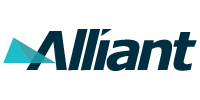 |
| 7:30 pm | Lorem Ipsum VIP Cigar Reception Invitation only, sponsored by |
| 7:30 pm | Lorem Ipsum Welcome Celebration Concludes |
Tuesday - May 6, 2025 | Conference Day 1
| Start Time | Description |
|---|---|
| 7:30 am | Lorem Ipsum Networking Breakfast In exhibit hall |
| 8:15 am | Lorem Ipsum Opening Remarks kick-off sponsored by 
|
| 8:30 am | Lorem Ipsum Shale Data Trends Keynote
|
| 9:00 am | Lorem Ipsum Texas O&G Economic Policy Update
|
| 9:45 am | Lorem Ipsum Water Data Trends Keynote
|
| 10:15 am | Lorem Ipsum Networking Break In Exhibit Hall break sponsor |
| 10:45 am | Lorem Ipsum E&P Operator Water Perspectives
|
| 11:30 am | Lorem Ipsum Evaporation Lies - Basic Principles vs Claimed Rates
|
| 11:35 am | Lorem Ipsum Where Are Produced Water Costs Going?
|
| 12:15 pm | Lorem Ipsum Networking Lunch With time to visit exhibit hall; Sponsorship available |
| 1:30 pm | Lorem Ipsum Risk Mitigation Trends In Produced Water [Fireside Chat]
|
| 1:50 pm | Lorem Ipsum Corporate Strategy & Finance Case Study
|
| 1:55 pm | Lorem Ipsum The Battle For Produced Water Ownership - Concho vs. Cactus Case Update
|
| 2:15 pm | Lorem Ipsum E&P Hosted Round Table Session 3 rotations (15-minute each) to join tables hosted by E&P representatives for candid dialog
|
| 3:00 pm | Lorem Ipsum Networking Break In Exhibit Hall In exhibit hall |
| 3:30 pm | Lorem Ipsum Pressure Risk Rising - So What & What Next?
|
| 4:10 pm | Lorem Ipsum Containment Certainty: Delivering The World's Largest Produced Water Storage Tanks
|
| 4:15 pm | Lorem Ipsum Transaction & Capital Market Trends In Water Midstream
|
| 5:00 pm | Lorem Ipsum Ranch Water Networking Reception In Exhibit Hall Sponsored by  |
| 6:30 pm | Lorem Ipsum Ranch Water Networking Reception Ends Evening free for client dinners |
Wednesday - May 7, 2025 | Conference Day 2
| Start Time | Description |
|---|---|
| 8:00 am | Lorem Ipsum Networking Breakfast In exhibit hall |
| 9:00 am | Lorem Ipsum Opening Remarks
|
| 9:15 am | Lorem Ipsum Using A Molten Salt Reactor For Thermal Desalination [Fireside Chat]
|
| 9:45 am | Lorem Ipsum Out-Of-Basin Disposal Trends
|
| 10:30 am | Lorem Ipsum Networking Break In Exhibit Hall break sponsor |
| 11:00 am | Lorem Ipsum Navigating New Mexico Water
|
| 11:40 am | Lorem Ipsum The Role Of Private Equity Backed Companies In Water Midstream [Fireside Chat]
|
| 12:00 pm | Lorem Ipsum Closing Remarks
|
| 12:15 pm | Lorem Ipsum Conference Sessions Conclude Exhibitor breakdown; time for pickleball tournament preparation, transportation, and lunch at courts |
| 1:00 pm | Tournament play will be from 2:30-5:30, but we are allowed on the courts for warm up starting at 1pm and food and drinks will be out at that time so you can plan to have lunch here after the morning sessions and before tournament play. We will have pickleball pros giving lessons on 3 of the courts from 1:30-2:30. Produced Water Pickleball Tournament At Chicken N Pickle with open bar and food provided; open only to conference registrants who sign up for player or spectator passes during online registration; swag and pro lesson included plus play for bragging rights. title belt and trophies sponsored by 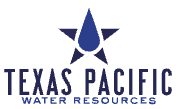 paddle and ball sponsored by 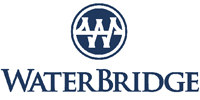 towels courtesy of 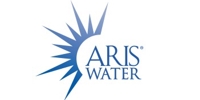 socks courtesy of  sweat bands courtesy of 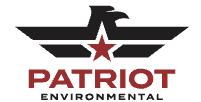 |
| 5:30 pm | Lorem Ipsum Pickleball Ends Conference adjourns |